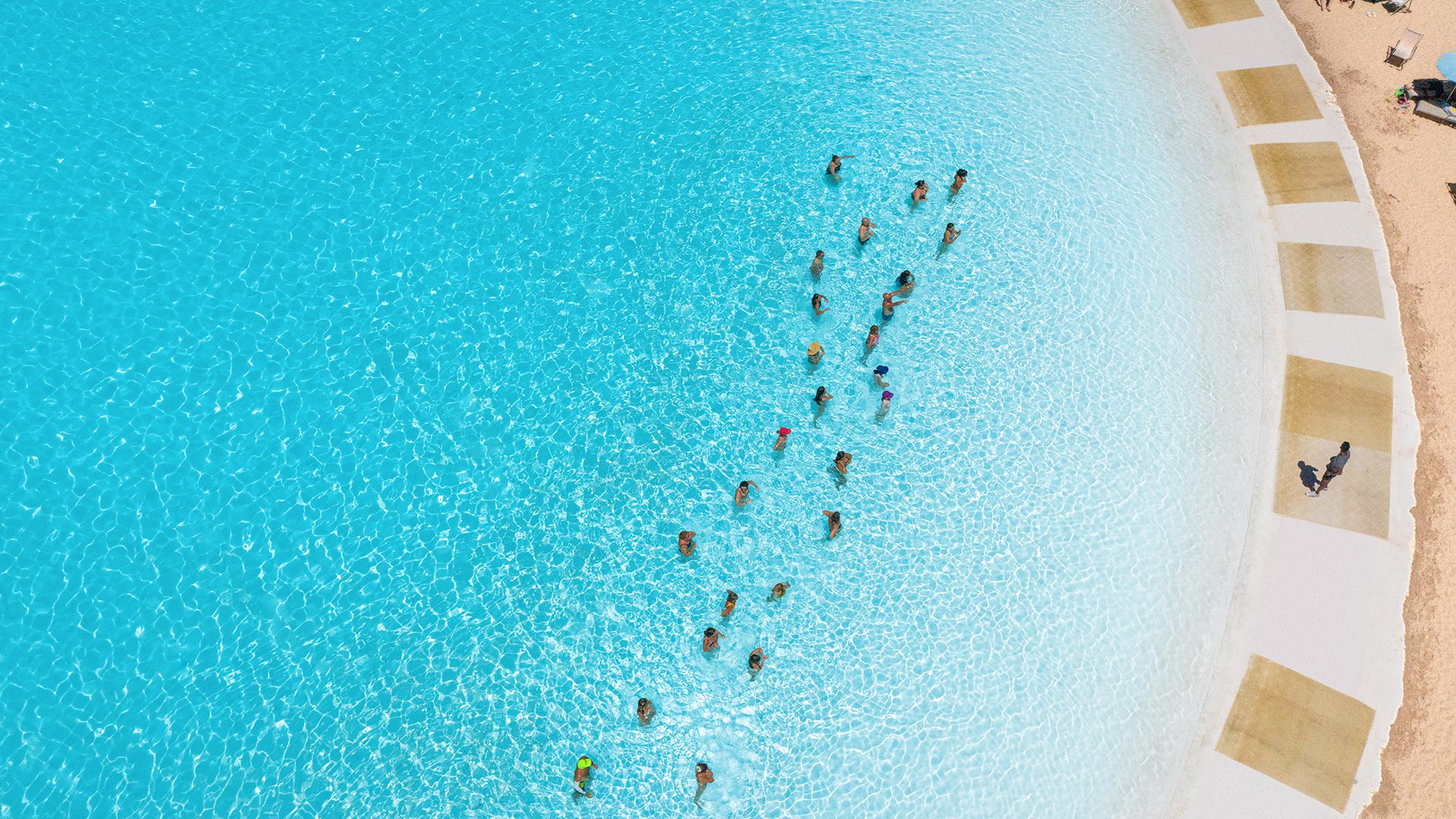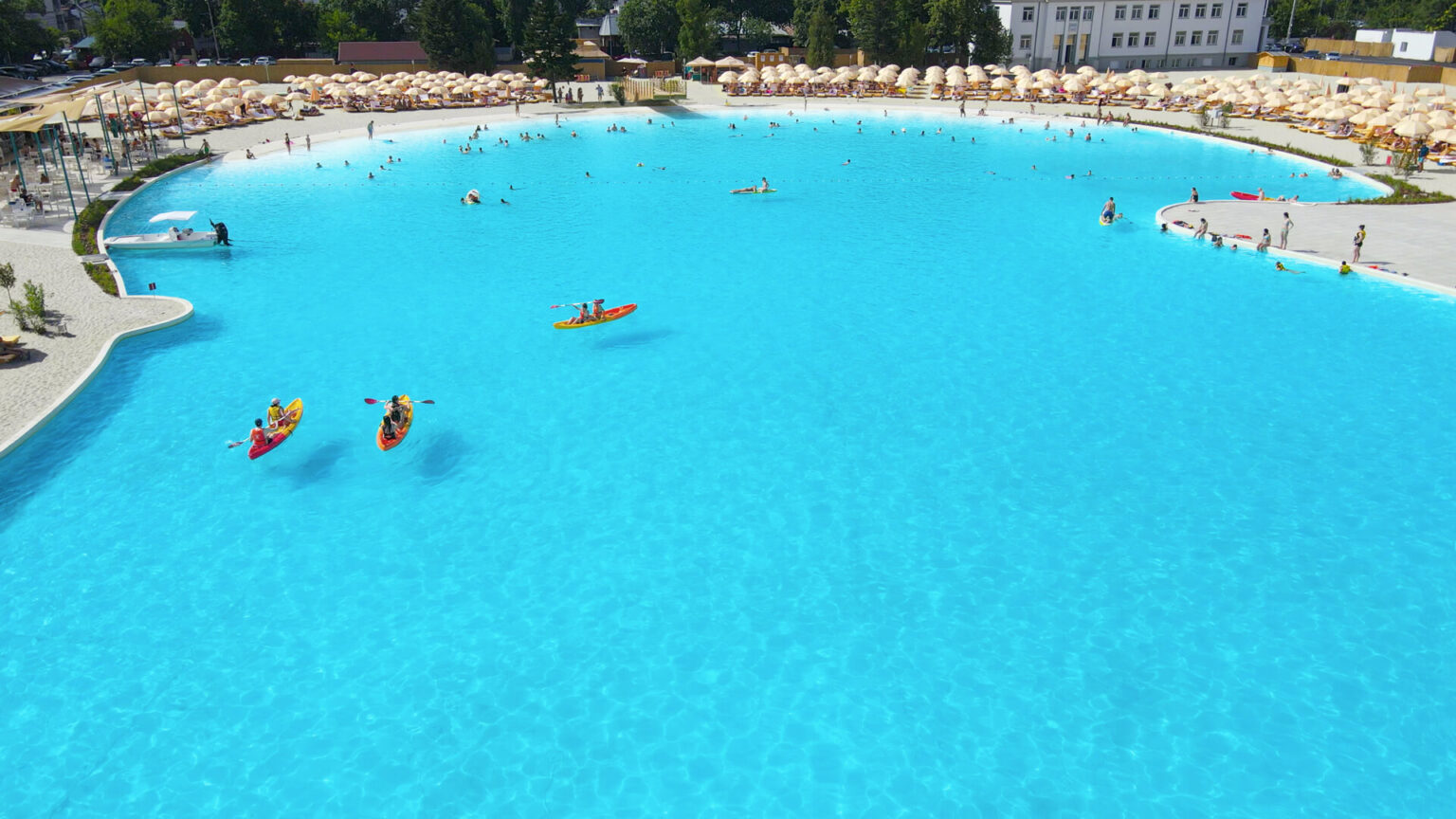Crystal Lagoons’ entry into the world’s second most populous country, India, has caused great international expectations. A few days after the announcement, more than 800 media outlets around the world have dedicated articles to highlight the important agreement signed by the multinational innovation company with the conglomerate Champions Group to develop 100 Public Access Lagoons™ projects, also known as PAL™ complexes, and real estate developments within a maximum period of 20 years.
These complexes will provide a source of entertainment in a country that culturally values water activities in cities. In fact, more than 80% of India’s population is Hindu, a religion that considers water to be a vital element of life.
This will be possible due to the agreement between Crystal Lagoons with Champions Group, one of India’s and Asia’s leading conglomerates with business interests in real estate, infrastructure, hospitality, automotive, finance, medical products, technology, media, fashion and lifestyle industries. Hema Malini Nidamanuri, CEO of Champions Group, was named as one of the “Top 50 CEOs” by CEO Magazine.
The deal covers 26 of India’s 28 states and through its partnership with Crystal Lagoons, Champions Group seeks to set up a new real estate portfolio, with projects designed for the high-income segment that involve paying a membership fee, something akin to a traditional country club. These projects will then be developed to cover other market segments.
With these projects, inhabitants of coastal and inland cities including New Delhi, Mumbai, Bangalore, Calcutta, Goa, Hosur, Chennai and Hyderabad will have the opportunity to experience a tropical paradise on their doorstep for the price of an entrance ticket.
The developments will start in the south of the country, which attracts most tourists and has a tropical climate. It will leverage the sustainable aspect of Crystal Lagoons® technology, which can make use of any type of water, consumes 30 times less water than a golf course and only half that of a park of the same size.
The projects include space for hotels, multi-family areas, stores, restaurants, recreational and entertainment activities, commercial and leisure infrastructure around the crystalline waters. The PAL™ developments will be open all year round and are expected to welcome over 500,000 visitors annually, always being mindful to not overcrowd the beaches, maintaining a minimum of 3-4 square meters per person.
“This agreement to develop 100 PAL™ and real estate projects is proof that our turquoise-water lagoons concept works, particularly the public access model. It also demonstrates why PAL™ projects make up 800 of our 1,015 Crystal Lagoons resorts worldwide, at different stages of development,” said Alastair Sinclair, regional director of Crystal Lagoons.
“PAL™ developments provide a safe and inclusive way to enjoy the water and change people’s lives in cities. It’s the same as what happened 200 years ago, when the first urban parks were created meaning the general public didn’t have to travel to a forest on the outskirts of the city to connect with nature. Today, every city in the world has parks and green areas. The same phenomenon is occurring with public access complexes, which integrate the concept of the ocean and the beach into city design,” Sinclair said.






